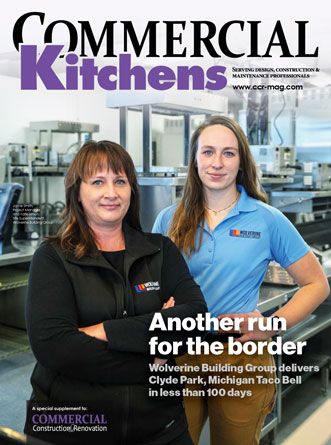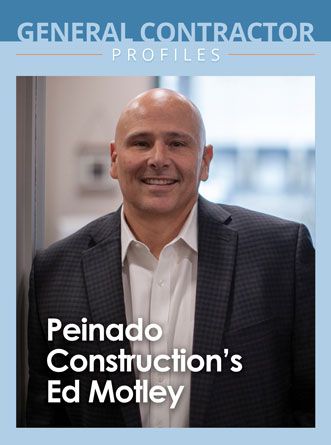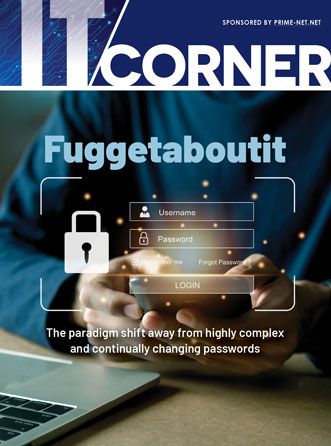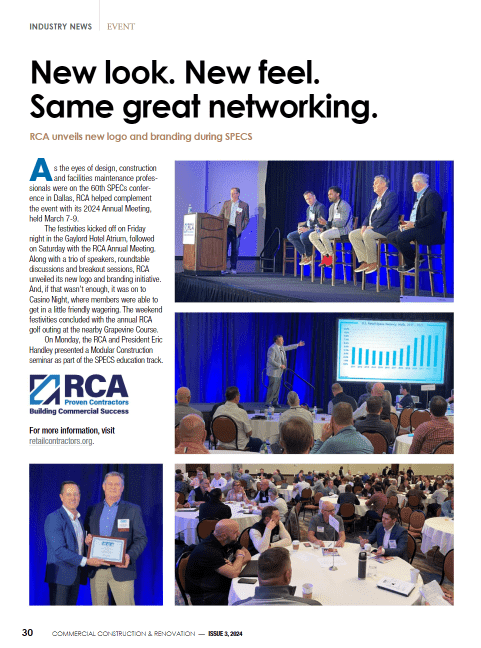 Relentless. Exceptional. Thoughtful. When you think of the Capstone Communities team, these are the descriptions that leap to mind. Drawing on years of commitment to serving neighborhoods across eastern Massachusetts, the Capstone team recently upped the ante with their partnership with smart building solutions company ePropertyCare.
Relentless. Exceptional. Thoughtful. When you think of the Capstone Communities team, these are the descriptions that leap to mind. Drawing on years of commitment to serving neighborhoods across eastern Massachusetts, the Capstone team recently upped the ante with their partnership with smart building solutions company ePropertyCare.
Together, the companies will incorporate building protection and automation solutions into affordable housing developments, which will help increase resident, landlord and contractor safety during the ongoing pandemic. The ePropertyCare platform enables landlords and property managers to remotely protect, monitor and control properties over the cellular network without requiring building WiFi. The process will help minimize in-person interactions that can spread COVID-19.
To help breakdown how the system works and what the affordable market looks like moving forward, we sat down with Capstone Communities co-founder and principal Jason Korb and ePropertyCare co-founder and CEO Charles Hadsell.
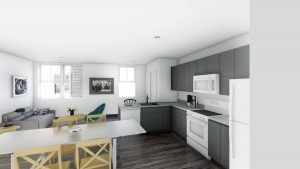 Give us a snapshot of the brand?
Give us a snapshot of the brand?
Charles Hadsell: ePropertyCare brings a secure and scalable smart building platform that helps developers and owner/operators protect, monitor and control their properties over a cellular connection. This provides an NOI boost by reducing costs and increasing rents and retention.
Capstone Communities is committed to helping neighborhoods across eastern Massachusetts thrive through the development of quality affordable and market rate housing, with a specialty in historic renovation and Low Income Housing Tax Credits.
What type of consumers are you targeting?
Hadsell: At ePropertyCare, we’re targeting tech-forward developers who plan to own and operate their buildings for the long-run. Our solution leads to insurance savings along with utilities and expense reductions, which add up significantly for developers, owners and operators that have a long-term management strategy in place.
Jason Korb: At Capstone, we work with cities and municipalities to develop market rate and affordable housing apartment communities through historic renovation, gut-rehabilitation and ground-up construction. This provides a mixture of market-rate and affordable housing units for a diverse array of residents.
How does the overall design of your homes cater to what today’s consumers are looking for?
Korb: Our building and unit designs incorporate the latest in smart building technology with a modern aesthetic. We have found that residents value technology-as-an-amenity. This is table stakes now for new developments and helps us stay competitive, efficient and differentiated in the market.
What are some of the adjustments you made with/to your business model surrounding the recent state of events?
Hadsell: COVID-19 is accelerating the deployment of smart building technology as builders, developers and landlords are forced to perform more functions remotely. We’ve pivoted our focus from smaller buildings to larger buildings as the advantages of smart building technology scale well with larger developments.
Korb: We had to virtualize many of our construction meetings for a period of time while city construction moratoriums were in place, which shut our construction projects down for a few months. Having the ability to monitor sites remotely, lock and unlock building and unit doors from afar provided us with the assurance that we would be notified in the event there was a leak or other deficiency at a property. Having the properties being monitored by ePropertyCare has been a game changer.
The larger Boston metro area is facing a housing crisis and demand for safe, quality housing is still very high, so we are continuing to move forward with property development in order to fulfill this need, although we have had to make adjustments. We’ve also seen the need to implement more advanced technology in our developments to provide additional resident safety and security in this COVID-19 era.
What kind of conversations are you having with your customers?
Hadsell: Many of the conversations are on cost savings, and helping building owners and developers reduce operational expenses. Insurance is a big topic right now because we’ve established insurance partnerships that help us bring tangible savings to the picture through the use of our water protection solution. In many cases, this pays for itself through savings, so it is a very interesting topic for every developer we’ve spoken with.
Korb: Our residents, construction teams, architects, city/state partners and lenders are equally concerned about the health and safety of our developments that are both operating and under construction. Our first priority is making sure everyone on site is safe and practicing proper social distancing and cleanliness procedures. Integrating smart technology has assisted in the process.
Second, we’ve found that our residents, property managers and contractors have an easier time using a fully automated smart building technology system and the savings that it creates greatly benefit us as the developer.
What role should a brand play in being a leader in a distressed market like this?
Hadsell: We’re focused on helping developers realize efficiencies and save time and money in their operations. This creates a strong word-of-mouth for our brand that reaches other developers in the area (and elsewhere in the country). Everyone is under pressure to reduce expenses, so helping clients realize savings is a key part of the value we can bring.
Korb: A brand is built on reputation, which is everything in this market. The affordable and market rate development communities are very small in Boston, and word travels fast. Having the opportunity to work with a vendor that is reputable, consistent, communicative and innovative saves us a ton of time, energy and money, which is huge for us.
What is the best piece of advice you can offer to other multifamily brands in how to deal with the unthinkable like this?
Hadsell: Think long-term. While we’re all experiencing short-term disruptions. I encourage others to think five to 10 years out, and make decisions based on those forecasts and economic models. Quality housing in desirable urban areas is a good long-run bet.
Korb: Stay the course. There will always be a demand for housing, and although it can be discouraging to encounter setbacks from the current pandemic we’re facing, it’s important to remember the human side of the equation. Other industries have been and continue to be hit much harder than ours and many people are facing housing and job loss. We have been affected by the pandemic, but we can help those who have been affected in worse ways than us by providing safe, quality housing.
COVID-19 is accelerating the deployment of smart building technology as builders, developers and landlords are forced to perform more functions remotely. — Charles Hadsell, Co-founder & CEO, ePropertyCare
Give us a snapshot of today’s multifamily market from your perspective.
Hadsell: While there is an urban exodus in certain markets, I think people will return to the cities that are adding jobs and contain robust employment prospects. I also believe the work-from-home trend will boomerang back to a certain degree after a COVID vaccine is deployed.
Korb: Eastern Massachusetts is facing a housing crisis and there is a severe lack of affordable housing, so there is a high demand even in challenging times like right now.
What’s likely to happen next?
Hadsell: I think we’ll have continued turmoil in the housing and rental markets until we get through the election and the financial and housing markets have more certainty.
Korb: We hope to see the market stabilize and demand for market rate housing return to normal. The demand for market rate housing has been impacted most significantly as many university students are attending classes remotely from their hometown and we’ve seen a surge in young professionals and families moving out of the city to have more space.
The demand for affordable housing has been impacted in the opposite way, with the need growing exponentially. The City of Cambridge, where many of our developments are located, recently passed the Affordable Housing Overlay, which will hopefully encourage the development of additional affordable housing in the area, which is urgently needed.
What trends are defining the space?
Hadsell: I think smart building technology is becoming table stakes for both mid-end and high-end developments—both from an amenities view and from a building operations view. Now that sensor costs have come down and reliability has gone up, building owners now can realize valuable insights digitally that would normally take the “eyes of the tenant” to realize. Being purely reactive is very costly when solutions now can help owners get proactive with property awareness, maintenance and repairs.
All housing is not created equal, but we are working to change that. Building apartments that respond to our residents needs with modern technology and amenities allows for people to have one less worry. — Jason Korb, Co-founder & Principal, Capstone Communities
Korb: The COVID-19 pandemic has re-defined housing needs in many different ways. Residents are looking for larger apartments to accommodate work-from-home schedules, separate building spaces that can be used for working or schooling, and outdoor space has become especially important.
In addition, we are implementing smart building technology that can be controlled remotely, building access technology that limits the amount of exposure, and health and safety precautions such 100% outdoor air circulation, positive pressure and ERV system balancing to reduce the amount of re-circulating air within any given space.
What is your short-term strategy? Long-term?
Hadsell: Short-term, we want to partner with key developers like Capstone Communities to make their projects a success in the community and carry on the learnings to subsequent projects. Long-term, we want to continue expanding to other geographies with robust developer partners that are tech-forward.
Korb: Our short-term and long-term strategies are much aligned. Our goal is to continue to create quality, safe, and innovative market rate and affordable housing for communities. We will continue to partner with local companies and contractors to ensure we are staying current and providing our residents with the best possible amenities and service.
What is the most defining part of the units/location?
Korb: The most defining characteristic of each unit differs by location, but our commitment to building quality housing is consistent. At Frost Terrace, for example, there are three historic homes on the property and one new construction building. The historic homes have been rehabilitated to retain their historic characteristics, while the new building is more modern.
Our goal is to build housing that you wouldn’t know is affordable, we build apartments where we would want to live. We also tend to develop housing in areas that are urban and close to public transit and local area amenities.
Walk us through how and why it is designed the way it is?
Korb: For us, it’s really simple. All housing is not created equal, but we are working to change that. Building apartments that respond to our residents needs with modern technology and amenities allows for people to have one less worry, making them more efficient and productive in other aspects of their lives. We design our developments to the highest standards, using building material with less chemicals and pollutants and incorporating rooftop solar and green roofs to help the environment.
Take us through your construction and design strategy.
Korb: We work with experienced, reputable contractors, architects and consultants who we trust will help us to make the best design decisions. We also find it extremely important to engage the community during the design/development stage to ensure we are building something that will also benefit the neighborhood.
Give us a rundown of your market’s layout.
Hadsell: Greater Boston has some of the oldest housing stock in the country. Even with the uncertain economic times, we’re seeing big tech and pharma invest in the market, so there is net jobs growth and a robust demand for housing. This is leading to demand for modernizing housing in the area through reputable developers like Capstone Communities.
What’s the biggest issue today related to the construction side of the business?
Korb: Rising construction costs and demand for affordable housing that continues to increase. There are only so many buildable lots in each city and each development takes years to complete.
Talk about sustainability. What are you doing?
Korb: Sustainability is core to our strategy. In the past, Capstone worked to achieve LEED certification for our affordable apartment communities, and going forward we will be building to Passive Housing US standards where possible, which is an even more energy efficient way of completing construction that requires an air-tight building envelope.
The most defining characteristic of each unit differs by location, but our commitment to building quality housing is consistent. — Jason Korb, Co-founder & Principal, Capstone Communities
What type of opportunities do you see moving ahead?
Hadsell: We are getting traction on larger and larger building opportunities. Our solution can scale up to thousands of units, so we’re now engaging developers and owners who manage thousands of units across multiple states.
Korb: Smart building amenities are more in demand than ever, and we see this demand trending upwards as new developments hit the market. ePropertyCare’s smart home solutions have allowed us to stay competitive in the market while keeping us up to date with the integration of new technology.
What trends are you seeing/expecting?
Hadsell: Integrated water leak protection is one big trend we’re seeing now. Water leaks and running toilets waste 1 Trillion gallons of water annually. We have a solution that can prevent this – reducing water waste and preventing building damage. We’re also seeing keyless entry increasing in popularity. We allow buildings to eliminate keys and give residents App control of locks and common doors. This is a popular amenity with residents and helps increase efficiency in building operations (especially during turns).
Korb: Amenities that help keep tenants safe and healthy. Remote technology for building access. Upgraded air filtration systems.
What is the secret to creating a “must visit” location in today’s competitive landscape?
Korb: High-tech amenities that also tie into the health and safety of a building. Our residents really value the ease of being able to control building access, visitor access, their thermostat and other smart accessories all via one app. This feature cuts down on the time it takes to get in and out of the building and helps to keep deliveries safe and secure. It also complements the modern and sophisticated design and decoration of our buildings.
What’s the biggest item on your to-do list right now?
Hadsell: Complete the technology rollout at Frost Terrace, continue the definition of the technology stack for Capstone’s Bridgewater project, and start defining requirements for Capstone’s recently won 49-unit affordable housing project on Massachusetts Avenue in Cambridge.
Korb: Complete our Frost Terrace project by spring of 2021. This is our marquee project for deploying ePropertyCare’s smart building solution on a larger scale. We are also developing 57 apartments in Bridgewater, Mass. which are predominately affordable and just went public with plans for 49, 100% affordable apartments just down the street from Frost Terrace. We plan to use ePropertyCare at both of these developments.
Tell us what makes your brand so unique?
Hadsell: ePropertyCare is unique because we are very focused on bringing technology solutions for the developer and landlord market. Our founding team is made up of landlords and engineers, so we clearly understand the problems landlords/building owners face, and how technology can be deployed to solve them efficiently.
Korb: Very few developers have the experience we have with historic renovation and Low-Income Housing Tax Credits that we do. We’ve made this a skillset and core part of our strategy. We also strive to build high quality housing that will serve both residents and the community.

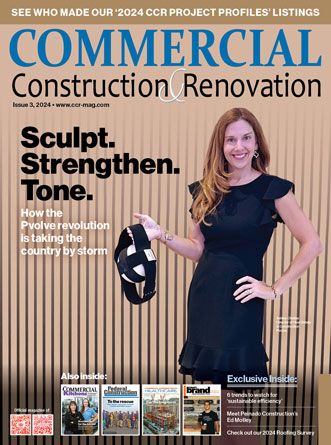




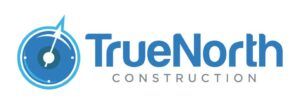


 The 2024 virtual Men’s Round Table will be held Q4, 2024, date TBD.
The 2024 virtual Men’s Round Table will be held Q4, 2024, date TBD.


